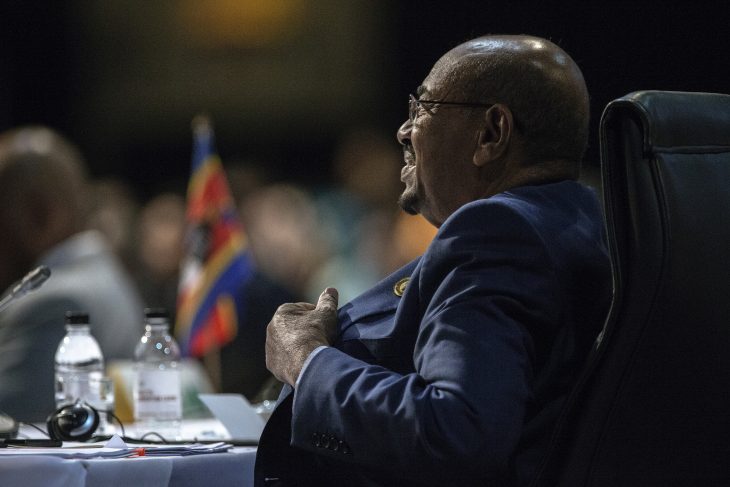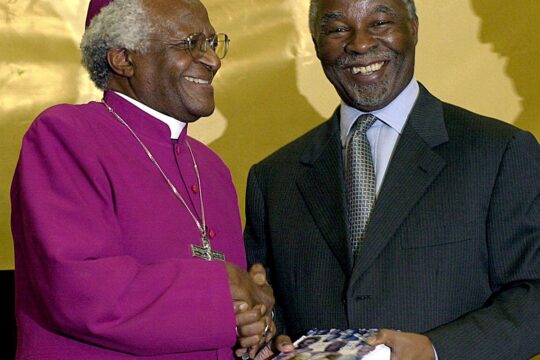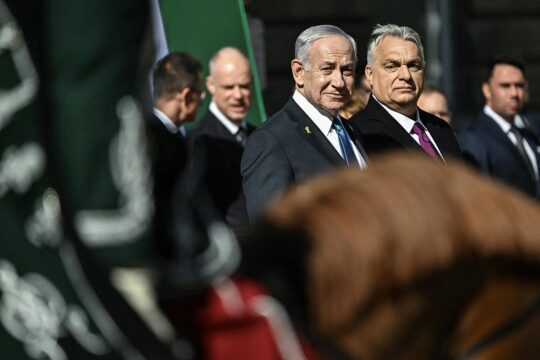South Africa has asked the United Nations to enact its withdrawal from the treaty of the International Criminal Court (ICC). This came just days after Burundi’s parliament voted to withdraw from the Court. Battling against a jurisdiction regarded by many African leaders as the legal arm of neo-colonialism, the African Union has for several years threatened a mass withdrawal, but has never managed to unite on this. Has Burundi now triggered a movement that could snowball into a gradual "Afrexit"? Eyes are now turning to Kenya and Uganda, which are active critics of the Court.
"The Republic of South Africa has found that its obligations with respect to the peaceful resolution of conflicts at times are incompatible with the interpretation given by the International Criminal Court", wrote South African Minister of International Relations and Cooperation Maite Nkoana-Mashabane in a letter of 19 October to the UN Secretary General. The government has opted for an ICC withdrawal bypassing the South African parliament. "I am concerned and disappointed at this regrettable action by the South African Government, " declared Richard Goldstone, advisory board chair of the NGO Coalition for the ICC and a former chief Prosecutor at the International Criminal Tribunal for the former Yugoslavia, who called it "unconstitutional and unlawful ". "I am confident that a South African court will so rule," he continued. "It is an act that is demeaning of our Parliament and of the people of South Africa. From a moral standpoint it detracts from the inspiring legacy of the administration of President Nelson Mandela that so strongly supported the ICC and all of the mechanisms of international justice."
Bashir case pushes Pretoria into anti-ICC camp
South Africa was long a supporter of the ICC, even warning Sudanese President Omar Al Bashir of possible arrest if he came for the 2010 World Cup. But five years later, with economic ties strengthening between the two countries, Bashir posed for a photo at the 25th African Union summit in Johannesburg. Despite warnings from the ICC, which called for the two arrest warrants against Bashir to be implemented, the Sudanese president was not only invited to the June 2015 summit, but became the involuntary "star". Almost as soon as he touched down on South African soil, the Southern Africa Litigation Center (SALC) called for his arrest. But although judges in the country ruled that he should be arrested, Bashir was allowed to leave South Africa a free man. The government was henceforth in the anti-ICC camp.
Africa has 34 States Parties to the ICC. Senegal was the first to ratify the treaty of the Court. Over the years, Uganda, the Democratic Republic of Congo (DRC), Central African Republic, Côte d'Ivoire and Mali have turned to it, resulting in the opening of investigations and the issuing of arrest warrants. But in July 2008, the announcement of an imminent arrest warrant against the President of Sudan - Prosecutor Ocampo qualified the crimes in Darfur as "genocide" - triggered the anger of African heads of State. A year later, Gaddafi’s guests at the AU summit in Sirte passed the first in a series of resolutions calling on African member states of the Court not to cooperate in this matter. Over the years, Djibouti, Chad, Malawi, DRC, CAR and South Africa, all ICC States Parties, chose to host Bashir.
Burundi moves first to pull out
On October 12, Burundi was the first to move in what could be the start of the feared "Afrexit". Parliament’s vote to withdraw from the ICC was promulgated six days later by President Pierre Nkurunziza, who won a controversial third term in July 2016, at the cost of a bloody clampdown on the opposition. This led ICC Prosecutor Fatou Bensouda to open a preliminary examination in late April 2016 into crimes committed, as a prelude to a possible full investigation. As Burundi announced its withdrawal, the ICC Prosecutor's office said that the still ongoing examination could include other crimes committed in Burundi up to at least when its withdrawal becomes effective. The withdrawal will be effective only one year after official notification to the UN Secretary General. It is "a withdrawal from democracy, human rights and the rule of law, not the ICC," responded the head of the NGO Coalition for the ICC, William Pace, saying that the ICC remains the strongest response to the "plague of repression by autocrats". A few days later, President of the Assembly of States Parties Sidiki Kaba called it "a setback in the fight against impunity". He urged Burundi to engage dialogue, and called on ICC States to discuss these issues in the next Assembly of States Parties. The next Assembly, bringing together the 124 members of the ICC, is scheduled for November 16 in The Hague, and already promises to be stormy.
This is not the first time that a Court official has tried to bring recalcitrant States before this mini-parliament, as have European diplomats. Yet Africans are more likely to try and assert their rights through the UN Security Council in New York. The Security Council has twice referred situations to the ICC, namely Darfur and Libya, even though three of its five permanent members are not parties to the ICC. This same Security Council has the power to suspend ICC investigations for one year (renewable) if it deems that they threaten international peace and security. The African Union used this argument in the case of Omar Al Bashir and later Kenyan President Uhuru Kenyatta, but without success. The Court’s intervention in the Sudanese and Libyan conflicts at the request of the Security Council were seen as devices to support regime change. It was also the case to a lesser extent with Kenya.
Afrexit?
Nairobi has spearheaded African moves to leave the ICC ever since Uhuru Kenyatta was elected President in April 2013, despite ICC charges of crimes against humanity against him. In December 2014, the Court dismissed the case against him after unsatisfactory investigations and intimidation of witnesses. As the Prosecutor withdrew the case, she denounced a lack of cooperation by Kenya. On September 19, 2016, the judges decided to refer Kenya’s non-cooperation to the Assembly of States Parties to "encourage greater cooperation". Like Kenya, Uganda also makes regular threats to withdraw from the ICC. Whilst the Burundian authorities are clearly acting out of opportunism in a small country that is politically isolated, without actually lifting the risk of prosecution by the Court, the move by South Africa, whose leaders are not directly threatened by the Court, is much more significant.






